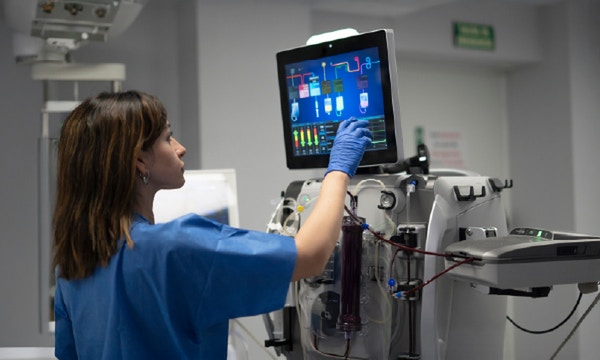At Adobe Summit, Adobe announced a new range of Generative AI services, including Adobe Firefly—a new family of creative generative AI models, focused on image generation and text effects—as well as new Generative AI innovations across Adobe Experience Cloud to power end-to-end marketing workflows.
In the era of experience-led growth, Generative AI is going to be a vital ally, supporting organizations in their ambition to change the world through digital experiences, innovation and creativity.
Discussing this topic, five HCLTech leaders provided their insights on how this disruptive technology is going to shape and define the future of work, life and human experience.
A game changer
From a practical standpoint, Scott Miller, AVP, XD North America, thinks Generative AI is a game changer when it comes to customer and employee experience.
“Generative AI is offering us a potential bright future for significant reduction in business processes friction, allowing customers and employees to dramatically reduce their time and energy to complete their tasks and bring great efficiencies and ROI to businesses.”
Greater focus on emotional and cognitive connection
Rachel Powers, SVP, views the technology as something that’s going to create very positive experiences. With its powers of prediction in real-time, it will be able to anticipate people’s wants and needs before they even know it. This is powerful, but it’s only part of the picture.
“Technology is one aspect, but there needs to be a greater focus on the emotional and cognitive connections of Generative AI—the context isn’t there right now and this is important, because we need to understand what’s driving people’s decisions, which will inform the experiences and content that are created,” she said.
A core ingredient for digital transformation
Virender Singh, Associate Vice President, believes Generative AI is becoming a core ingredient for the delivery of digital transformation, whether it's infrastructure, application or cloud.
“In an Adobe context, the technology is disrupting and automating the whole content supply chain and business workflow around the content ecosystem. It’s making it more intelligent, enabling automatic template creation for what content belongs in what channel,” he said.
He added: “On the other side, Generative AI will impact data-driven experiences, segmenting and bringing the right content experiences to a particular persona based on past data.”
Time to make a difference
Nick Sarkisian, Vice President – Digital Business, explains that many organizations are not set up to drive innovation. Time is the issue.
“Generative AI and instant content creation will give people time back to think innovatively. The question of how that time gets reallocated and what tasks Generative AI gets allocated to is the interesting part of the equation,” he said.
He added: “There will be more bandwidth to think creatively and change the perspective on what work is and how we think about it.”
A redefining moment
Generative AI will help organizations figure out what customers are looking for.
Beyond that, Lester Lam, Executive Vice President and Global Leader for Consulting, predicts that the technology will start to redefine roles and the future of the work.
"The concept of full stack developers, people who go through the gamut of development and all the activities are associated with it, is nothing new. But, with the combination of Generative AI, along with tools and platforms like Adobe, it shows they’re integrating the workflow across the entire marketing ecosystem. This will lead to the need for full stack creatives or full stack marketers. The democratization of these tools will enable those in marketing to reach into the creative side of things. The lines will begin to blur. The creators will be asked to not only create but push campaigns through the workflow to the point of execution,” he explained.

 Listen to article
Listen to article



